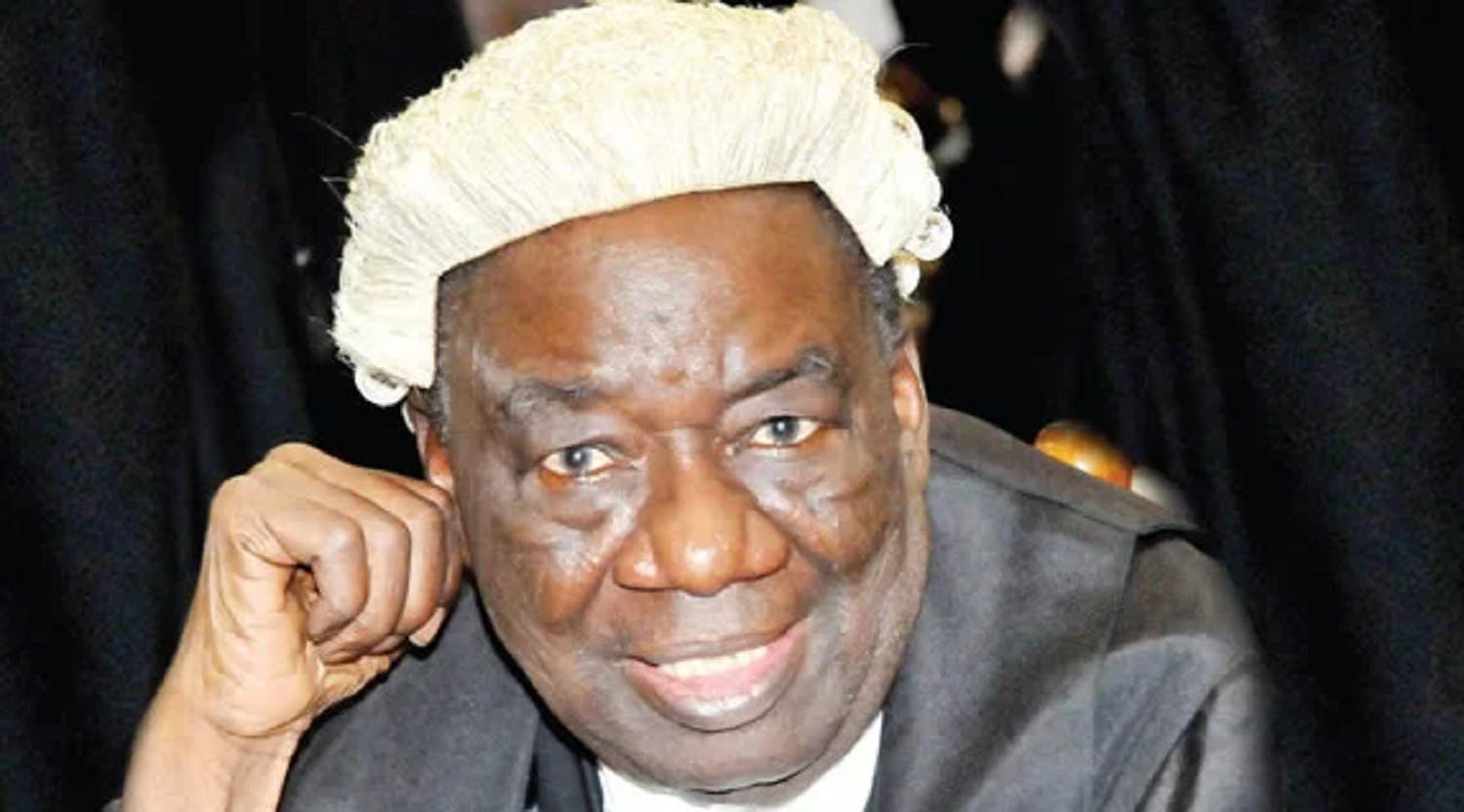BREAKING: Justice Richard Akinjide is Dead
3 min read
Richard Akinjide (1932-2020)
Chief Richard Osuolale Abimbola Akinjide, SAN, former Minister of Education in the First Republic and Attorney-General and Minister of Justice in the Second Republic, passed on, April 21, 2020. He was 88. Chief Akinjide occupied a special place in Nigerian history as a witness to the final years of the colonial government and was part of the First Republic and the Second Republic. President Muhammadu Buhari praised him for his service to “country and humanity.” Former President Olusegun Obasanjo, in mourning him, said that Akinjide was a passionate participant in both the executive arm of government and constitutional matters” as an avid chronicler of our evolution as a people and nation”. Former President Goodluck Jonathan found him “a forthright jurist and a legal icon.”
Born on November 4, 1931, in Ibadan, he attended Oduduwa College, Ile-Ife and later travelled to the United Kingdom in 1951 where he studied Law and was called to the English Bar in 1955 and later in Nigeria. He then established his law practice, Akinjide & Co.
A member of the Ibadan People’s Party (IPP), which played a historic role in the contentious Western Regional Election and the 1952 “carpet crossing” that till date has redefined Nigerian politics, Akinjide later served as Minister of Education in Sir Abubakar Tafawa Balewa’s administration at the age of 29. In the Second Republic, he served as the Attorney General and Minister of Justice. Before then, Akinjide was the Chairman of the Nigerian Bar Association from 1970-1973. He helped found the Yoruba Council of Elders and was a member of the Constitution Drafting Committee (1975-77) and National Political Reforms Conference in 2005. He was among the first 13 Senior Advocates of Nigeria (SANs) who got their silk in 1978. Of the 13, only Prof. Ben Nwabueze is left. He died as one of the brightest lawyers Nigeria ever produced. His defining legal career was after the 1979 Presidential election in which President Shehu Shagari of the National Party of Nigeria (NPN) was declared winner. Unity Party of Nigeria (UPN) rejected the result and proceeded to the tribunal. Though NPN had more votes than the UPN, the bone of contention was that UPN said NPN did not have sufficient votes as required by law to form government.
The electoral rules said that the winner must have one-quarter of votes in two-thirds of the then19 States of the federation. Akinjide’s mathematical ingenuity played out against a team of seasoned mathematicians assembled by the UPN and its party flagbearer, Chief Obafemi Awolowo. Shagari had 25 per cent or one-quarter in 12 states but failed to have 25 per cent in Kano State where he had 243,423 votes, the equivalent of 19.4per cent of the 1,220,763 votes cast in total in that state. The controversy was on how to get the two-third of 19 states. While defending Shagari and NPN, Akinjide argued that two-thirds of 19 is 12 and not 13. He came to his rationalisation by dividing the 13th state (Kano) into three and votes cast in two-thirds of the state constituting the figure from where two-thirds of votes were said to have been secured by Shagari, earning Shagari the constitutionally required votes. In other words, through fractionalising of Kano State and going for the two-thirds of the votes in the state, the Supreme Court eventually upheld the verdict of the election tribunal and ruled in favour of Shagari.
An avid supporter of ‘One Nigeria,’ through restructuring, Nigeria would surely miss the statesmanship of Chief Akinjide who always put national interest above ethnic or group interests. Reputed for his uncompromising adherence to the rule of law and due process, he was indeed a bridge, ever ready to deploy his wisdom and knowledge garnered over the years for the good of his country. The federal and Oyo State governments should immortalize him by naming any of the Law Schools or the legal institutions in his remembrance.




